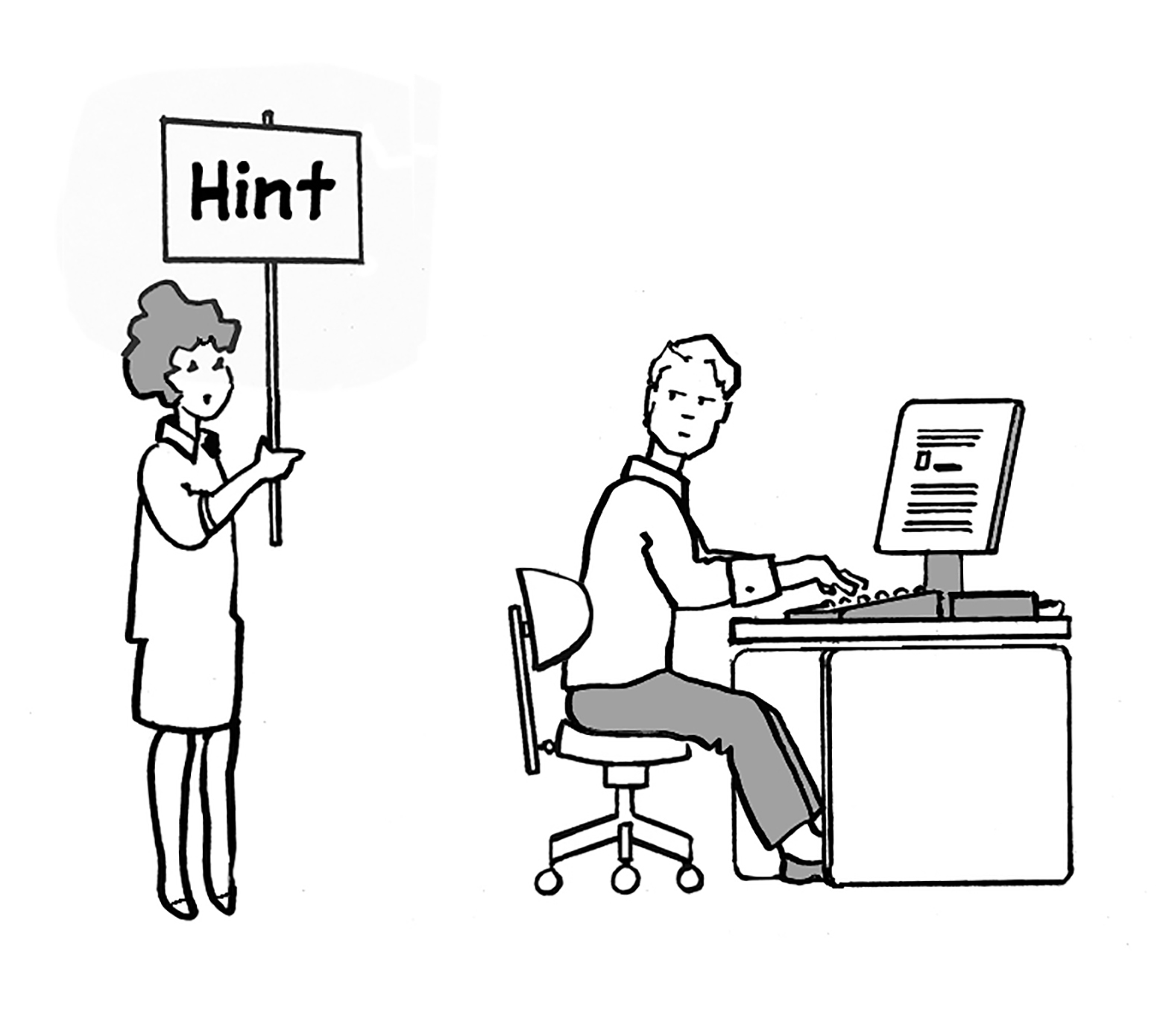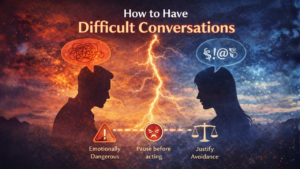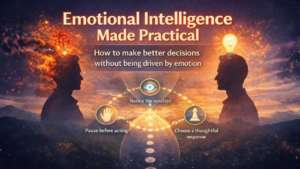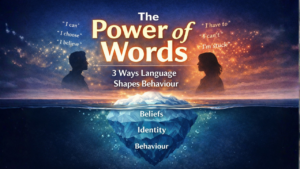When to Really Listen: Strengthen Connections Through Intentional Listening
Are you truly listening to the people you love—especially in the moments that matter most?
We all want stronger relationships and deeper understanding. But too often, we confuse listening with simply hearing. And in challenging or emotional moments, this gap becomes even more visible.
Listening in tough moments isn’t about fixing things—it’s about being there, fully and compassionately. This is where intentional listening comes into play.
Are You Really Listening—Or Just Filling Space?
You may be a great listener at work, but personal and emotional conversations demand something more: presence, awareness, and often, knowing when to stay silent.
When someone is vulnerable—feeling hurt, uncertain, or overwhelmed—they don’t need advice or action plans. What they need is a calm, caring presence. Someone who sees them, hears them, and makes space for their emotions.
This is the essence of empathetic leadership—in families, friendships, and professional settings alike.
Tip #1: Timing in Listening Matters
We often treat listening as one-size-fits-all. But just as conversations vary, so does the kind of listening required.
True connection happens when you adjust your listening to meet the moment. Recognising the right time to speak—and the right time to be silent—is a skill that defines mindful communication.
In Australia’s fast-paced culture, the art of slowing down and being present is increasingly rare—and deeply needed.
Three Signs It’s Time to Shift to Deeper Listening
1. You Notice a Change in Behaviour
When someone isn’t acting like themselves—quiet, distant, or unusually irritable—it’s a cue. Rather than asking “What’s wrong?” with urgency, just be present. Sit in the silence and let them know you’re there when they’re ready.
2. You See Strong Emotions Surface
Tears. Frustration. Withdrawal. These are moments that call for your full attention. Don’t fill the space. Don’t jump to fix. Just stay with them. This is where timing in listening is critical.
3. You Know the Topic Matters to Them
Even if it doesn’t seem important to you, if it matters to them—it’s worth your attention. Intentional listening means showing respect for their values, emotions, and experiences, even when it’s uncomfortable.
Being Present: A Leadership and Life Skill
You can’t always listen deeply. Life is busy. That’s okay.
But the more you learn to recognise the moments that do matter—when someone really needs to be seen and heard—the more meaningful your relationships will become.
This is what it means to be present. To pause your thoughts, drop your agenda, and show up fully for another person. It’s simple. And it’s powerful.
Want to Go Deeper?
If you want to build your emotional intelligence and strengthen your listening skills in Australia, check out “Listening – A Guide to Building Deeper Connections.” Available in paperback, eBook, and audiobook.
It’s filled with practical, compassionate tools that help you listen better—not just in theory, but in real conversations that matter.
Final Thought: Silence Can Be the Strongest Support
Sometimes the most powerful way to support someone is to say nothing at all. To sit with them. Breathe with them. And simply listen.
Because in the end, it’s not your words they’ll remember—it’s how you made them feel.
Let’s start building more meaningful connections—one conversation at a time.






